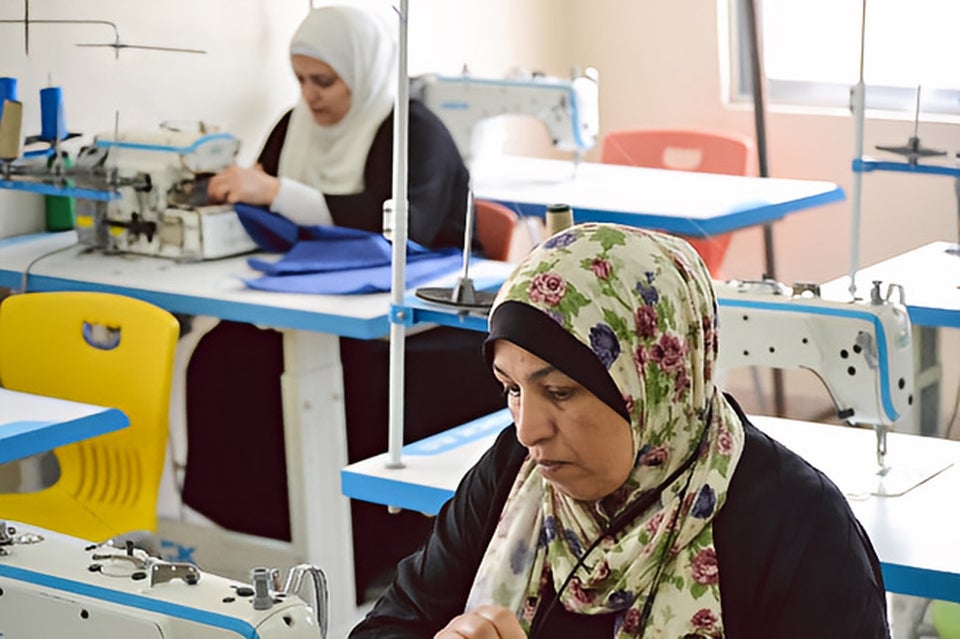Jordan – Arab States
Date:

Since 2012 UN Women in Jordan, with support from the European Union Regional Trust Fund ‘Madad’ in Response to the Syrian crisis and others, and in partnership with the Ministry of Social Development, has been leading the Oasis programme, a beacon of innovation in Jordan's humanitarian sector. The 22 Oasis centres across Jordan, including four in the Za’atari and Azraq refugee camps, have been a cornerstone of empowerment for over 30,000 beneficiaries, primarily Syrian refugees and vulnerable Jordanian women and their families. The Oasis programme receives support through the EU Regional Trust Fund in Response to the Syrian Crisis, the Madad Fund, as well as the Australian Department of Foreign Affairs and Trade and the governments of Canada, Finland, France, Iceland, and Italy.
In 2023, because UN Women supported 589 women, including 454 Jordanians and 135 Syrians, with business trainings, a remarkable 70% of these women launched their own business projects, underscoring the programme's pivotal role in fostering economic independence. UN Women also improved accessibility at the centers, so that nearly 15% of women reached are persons with disabilities.
The programme bolsters social inclusion, enhances women's economic self-reliance, and drives social and behavioral change, especially among men, in the face of the protracted Syrian crisis and Jordan's ambitious triple reform agenda. It seamlessly integrates into the broader frameworks of the Jordan Priority Response Plan and the UN Sustainable Development Framework (2023-2027) and has become a model that not only enables women to lead prosperous lives but also stimulates community-led development and stability, marking a new chapter in the transition from humanitarian efforts to development-oriented actions.
Abeer Abu-Rizeq, a 48-year-old from Jordan, found herself facing challenging circumstances. Divorced and a mother to a 13-year-old child, she previously owned her own shop. However, life took a difficult turn after her divorce, compounded by a health issue that led to the amputation of her right foot. She says about the programme: “The salary I received during my time at the centre was a great assistance, it made many things easier for me at that time. After the course I started my own business again, but this time from home. I am working as a tailor, developing my skills and always trying new techniques.”